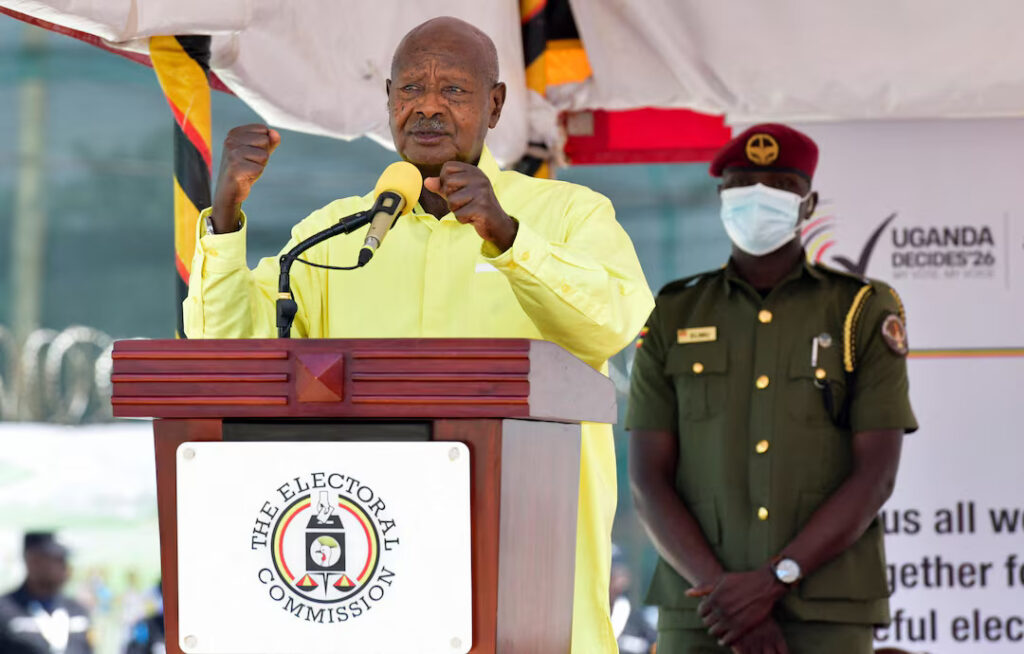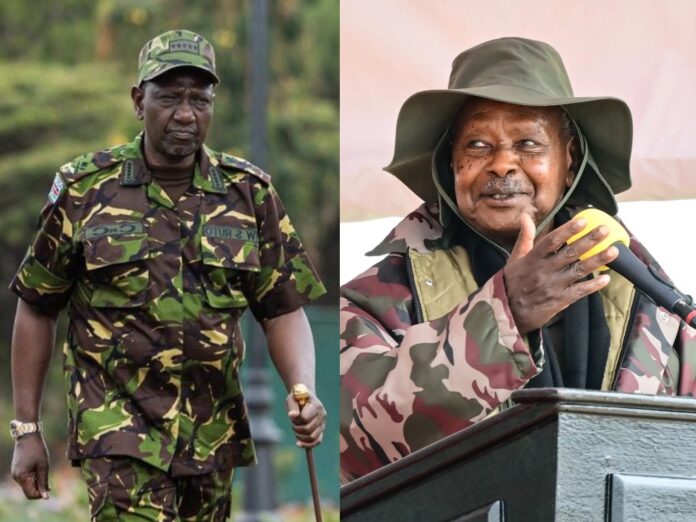Uganda, a landlocked East African nation, has once again sparked regional concern as President Yoweri Kaguta Museveni announced ambitions to build a navy and secure unimpeded access to the Indian Ocean.
Museveni claims that Uganda has maritime rights akin to coastal neighbours Kenya and Tanzania and has hinted at military action should access be denied.
Speaking to journalists, Museveni likened Uganda to a house on the upper floor of a building, arguing that it has a right to the compound below, just as coastal states have rights to the ocean.
“My sea is the Indian Ocean,” he said, framing the country’s quest as a matter of national entitlement rather than diplomacy. He criticised what he described as the “selfish mindset” of some coastal nations, insisting that oceans and ports should serve the entire continent.
Uganda’s maritime ambitions are not new. Kenya has faced similar threats in the past, most notably during the 1970s under Idi Amin. In February 1976, Amin threatened to annex large parts of Kenya, claiming the territories belonged to Uganda and demanding a border just 32 kilometers from Nairobi.

The threats were partly motivated by Uganda’s domestic challenges and a desire to access the port of Mombasa. Kenya responded by mobilizing its military and staging public rallies, while the international community, including the United States, condemned Amin’s stance and provided support to Kenya.
The conflict never escalated into war, deterred by Kenya’s military preparedness and the prospect of international intervention. At the time, founding President Jomo Kenyatta declared at a rally in Uhuru Park:
“Our obligation and commitment is to defend our independence and borders day and night. We are not interested in provoking anyone, but those who want to play with Kenya must know that they will be dealt with ruthlessly.”
Museveni’s recent statements echo this historical pattern of Uganda asserting maritime claims at Kenya’s expense. His son, Muhoozi Kainerugaba, a senior military official, has expressed readiness to use force to secure a corridor through Kenya.
Nairobi offers the shortest route to the Indian Ocean, with a railway linking Kisumu on Lake Victoria to the port of Mombasa, making it strategically important for Uganda’s trade ambitions.

While Uganda is pursuing alternative routes, including an oil pipeline from Hoima to the Tanga Port in Tanzania, the rhetoric heightens regional tensions.
Kenya itself has ongoing territorial disputes, including with South Sudan over the Ilemi Triangle, a sparsely populated area of roughly 11,000 to 14,000 square kilometers, and with Somalia over maritime boundaries.
In 2021, the International Court of Justice largely ruled in Somalia’s favor, though Kenya rejected the decision, underscoring the fragility of regional diplomacy.
However, the Ministry of Foreign Affairs have downplayed those threats as mere talk by Museveni and insist good relations between the countries. As to whether Museveni will materialize his dreams remains to be seen.



















